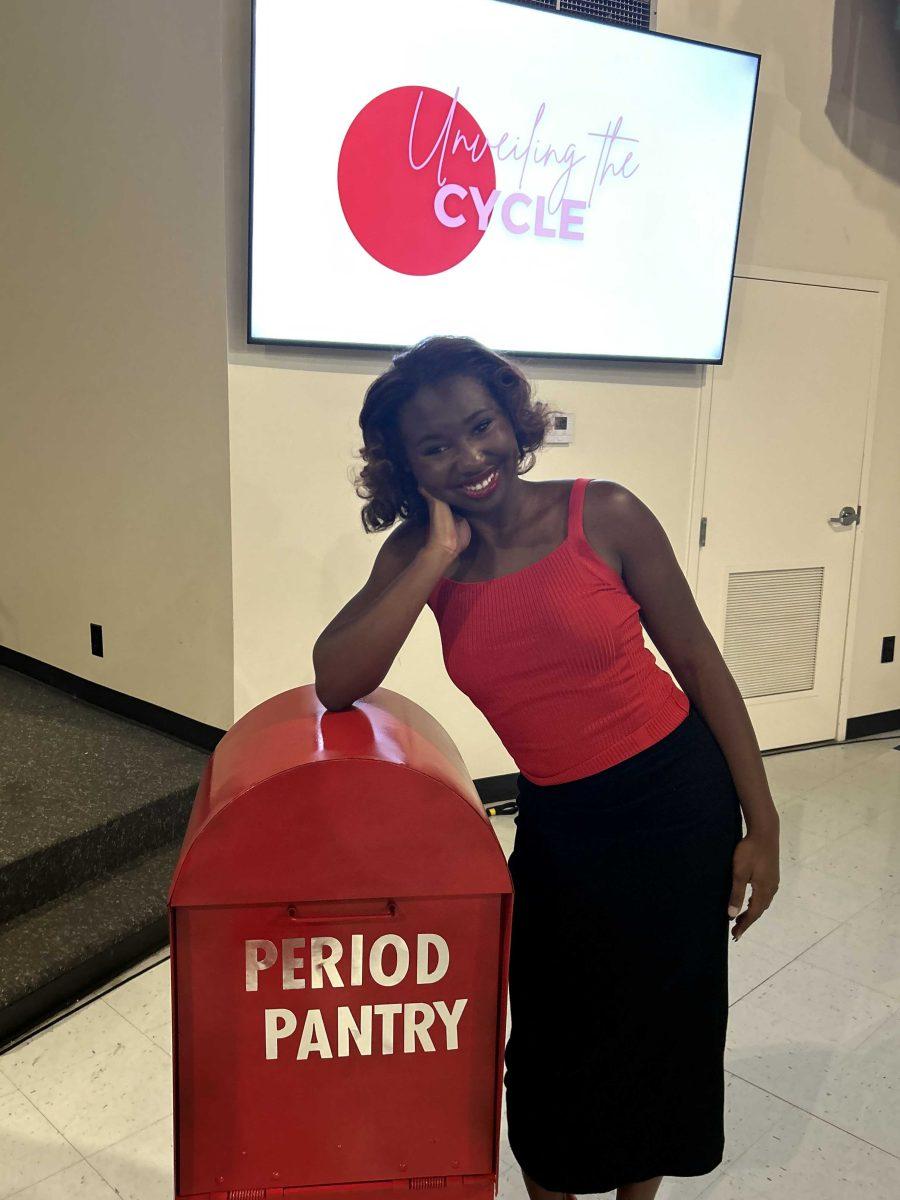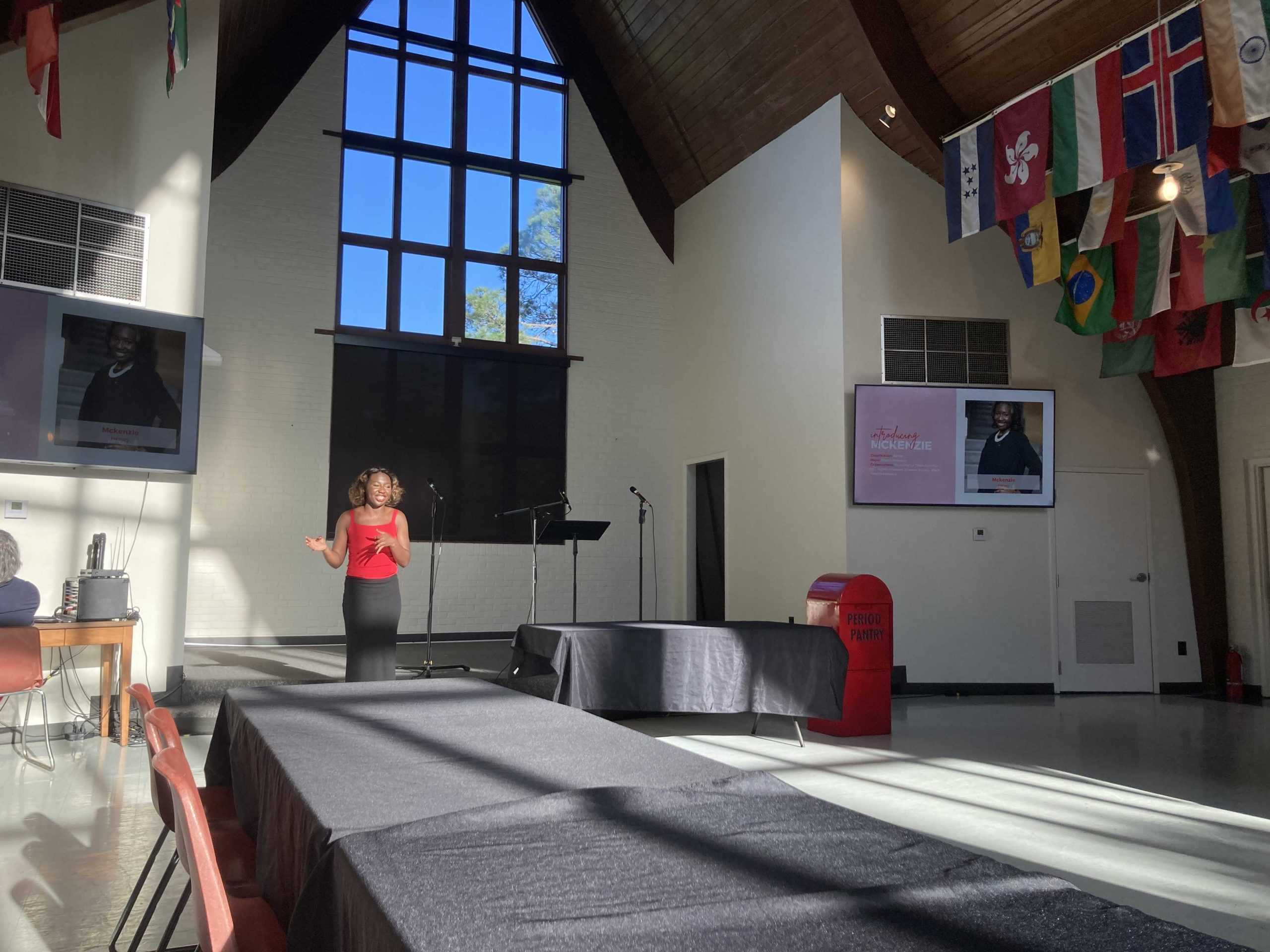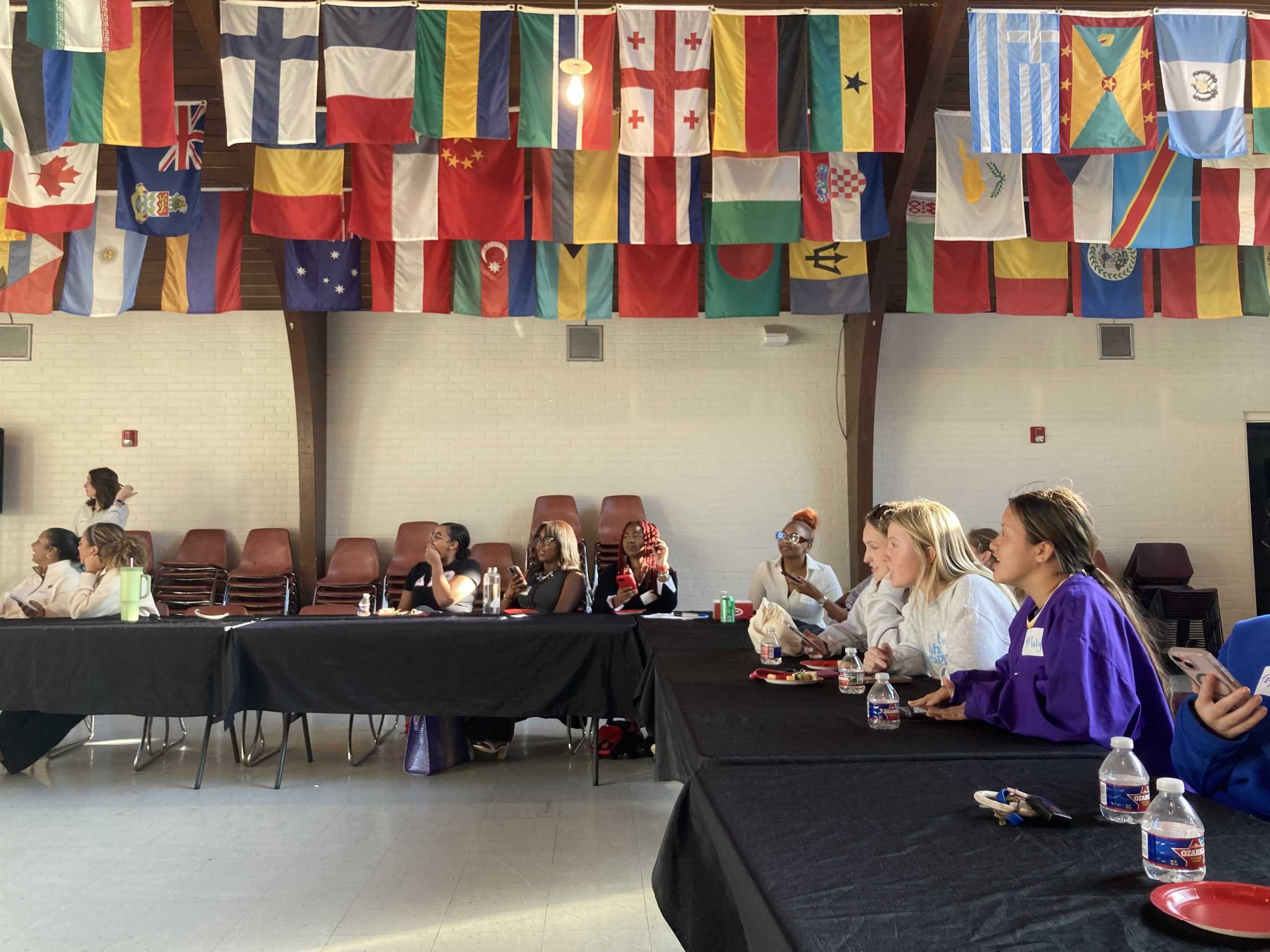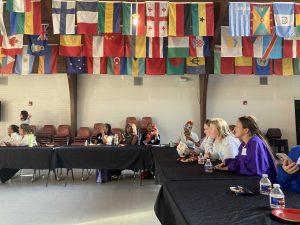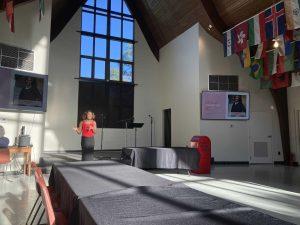Mckenzie Hervey, a senior public relations major at LSU, recently hosted “Unveiling the Cycle,” an event on menstrual transparency and proposed a solution for a lack of menstrual products available on campus.
The event took place at the LSU International Cultural Center and was part of Hervey’s honors capstone thesis. At the event, Hervey presented her research, led a small group discussion and explained the “period pantry,” her idea for meeting women’s menstrual needs at LSU.
Hervey’s presentation was open to anyone, but her target audience was female leaders on campus. One of the key takeaways from her research was that many university campuses lack safe spaces where college-age women feel comfortable speaking or asking questions about menstruation.
As part of the event, Hervey held a “taboo talk” with the attendees. She invited them to speak up about their personal experiences with menstruation education and the stigmas that surround the topic as a whole.
“I think it’s important to have those conversations because most likely you’re going through the same things at the same time,” Hervey said. “And it’s an intimate conversation. It’s an intimate space, so then you’ll feel more comfortable having more of those conversations.”
Following the personal discussion, Hervey proposed her idea of the “period pantry,” a bright red box that will contain a variety of period products including pads, tampons, and other hygiene necessities.
Emergency menstrual products are available in some restrooms at LSU, but most cost money and are low quality goods. Hervey’s vision is for the period pantry to contain a wide variety of products and be completely free for women to take from.
The pantry is located in the International Cultural Center and will be sustained by donations from the public. Its purpose is to fulfill a need for women on campus and allow users to experience new kinds of period products donated by others. Users can take menstrual products they want to try, and also donate unneeded items to the pantry.
This way, women can test out new goods without having to purchase an entire package before knowing if they like it.
“I don’t want it to be something where you feel like you have to give something in order to get something,” Hervey said. “I want it to be a self-sufficient entity.”
Sadie Wilks, Manship School of Mass Communication professor and internship coordinator, assisted Hervey with the research process and implementation of the period pantry.
Wilks said that the pantry is an important part of the capstone project because it creates a lasting impact on campus and in the women community. Wilks also pointed out the significance of Hervey hosting the event itself.
“The other lasting impression is that student leaders, which is who we invited, would take the information and go back to their groups and say ‘Hey I went to this thing, and we talked about this,’” Wilks said. “This is a conversation that’s easily replicated with their members who might have an interest in that topic, and then the awareness builds that way. So it’s a call to action to share that information with your circles.”
Throughout her research process, Hervey also worked with a Baton Rouge non-profit organization called Power Pump Girls, Inc. Sherin Dawud and Raina Vallot created PPG in 2017 to help increase period equity, improve menstrual education and raise awareness about issues related to menstruation.
Among other endeavors, PPG holds drives to collect menstrual products and works with other organizations to distribute them in areas of the community that need them most. The Power Pump Girls provided the first donation of 1,000 period products for Hervey’s pantry.
Dawud and Vallot were invited by Hervey to present information about PPG at the event. The two women also participated in the taboo talk, contributing personal stories about their experiences with menstruation. Dawud and Vallot, who are both LSU alumnae, spoke highly of Hervey’s idea for the period pantry and the positive effects it could have on campus.
“I don’t remember there being spaces like this or even pantries or accessible products that you didn’t have to pay for when I was here,” Dawud said. “I knew that we had the health center, but I never felt comfortable enough going there to ask for products. I think there wasn’t a good job of communicating access to people.”
“I also think seeing someone identify an issue and create a solution for it, even though it may seem small now, on a global scale, this period pantry could have so much impact for students on campus, one exposing them to new products but also just providing access if they don’t have it,” Vallot said. “I love seeing young people and just people in general finding an issue and then creating the solution.”
The women who attended the event recognized the importance of continuing the conversation about menstruation and working to erase the social taboo on the topic.
One attendee, Kacey Askew, the president of the Iota Theta Chapter of Delta Sigma Theta Sorority, Inc., saw the necessity of bringing information from the event back to her women-led organization.
“We are not going to be successful if we continue to have these conversations and then not spread the information or what we learned because periods are normal,” Askew said. “It should be normal to have the conversations. I definitely feel like we have to work to normalize it, normalize the conversation and talk about what we learned here.”


